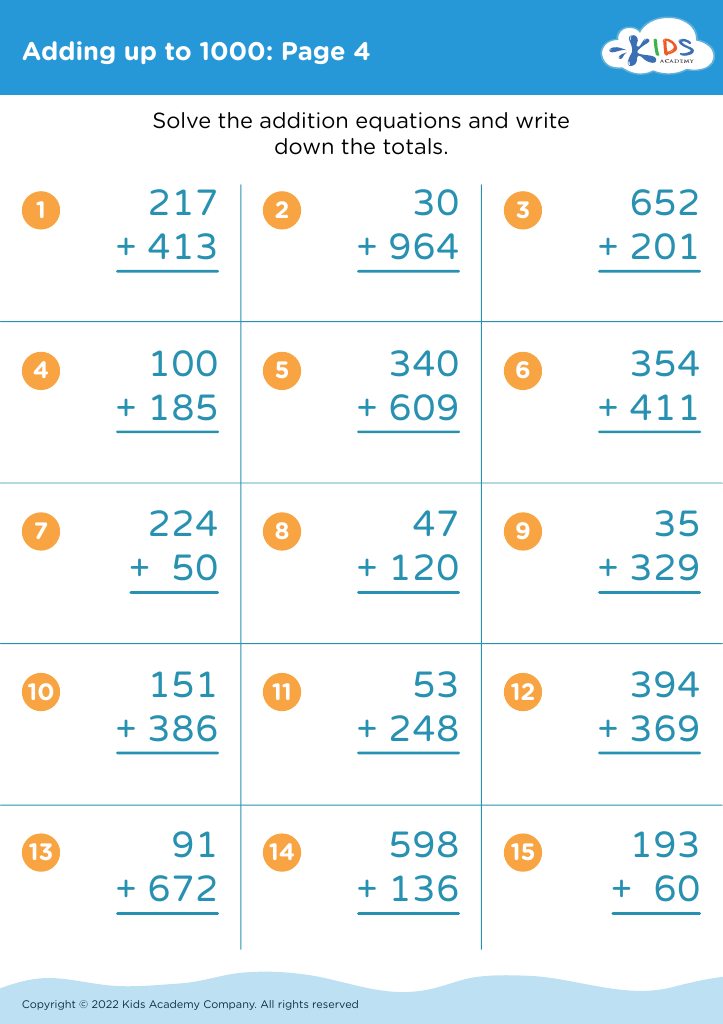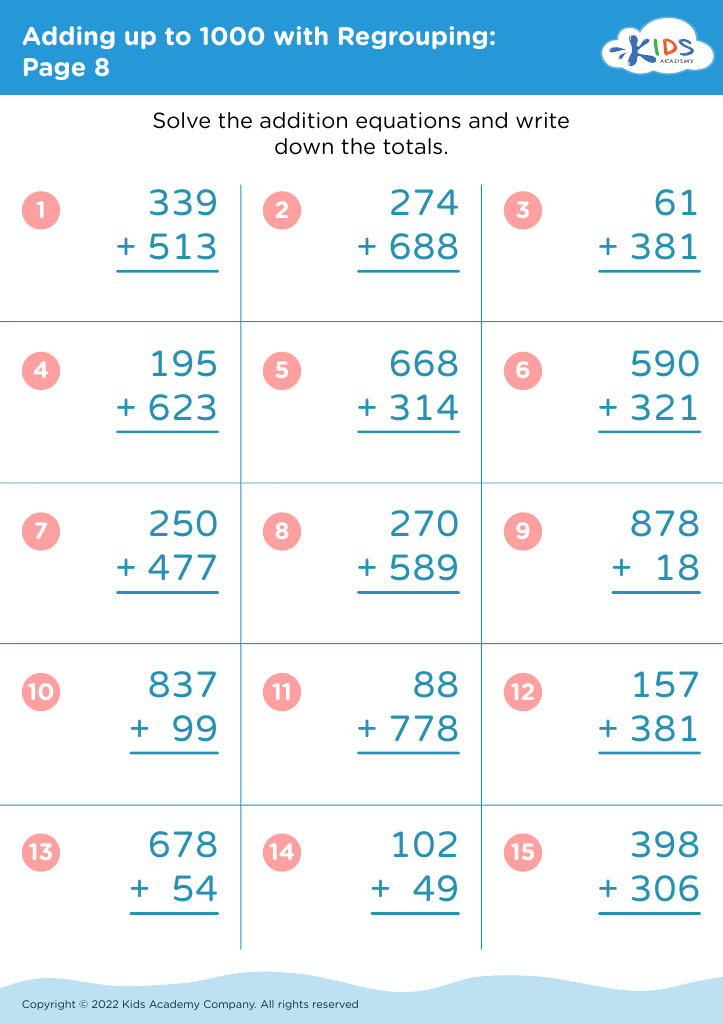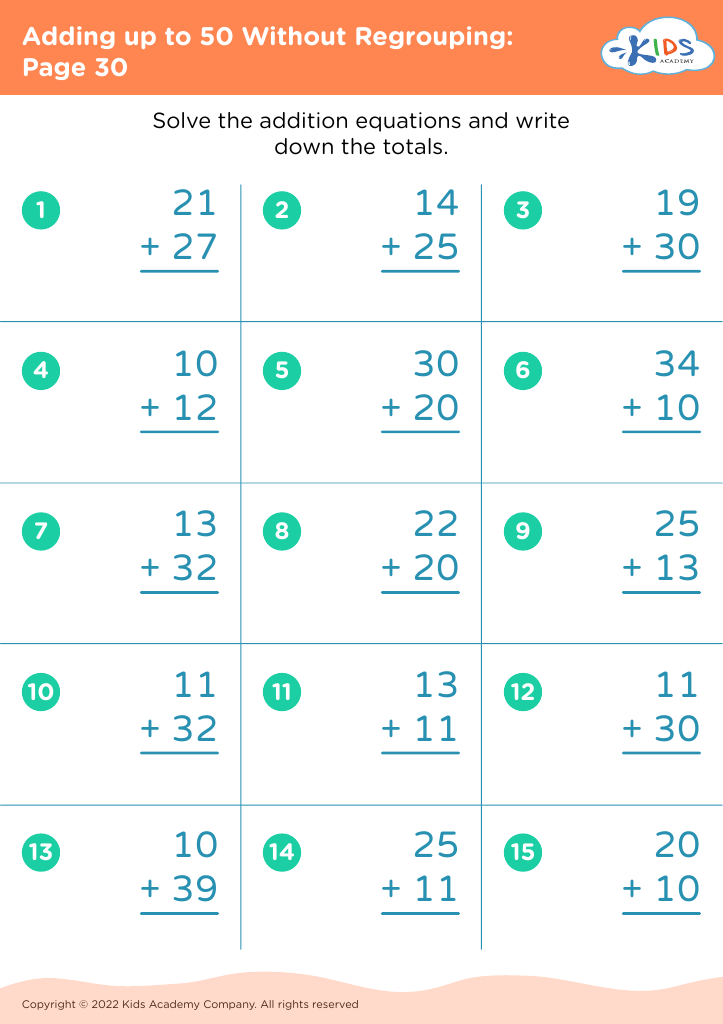Understanding addition Addition Worksheets for Ages 3-8
8 filtered results
-
From - To
Explore our "Understanding Addition Worksheets" designed for children ages 3-8, perfect for fostering early math skills! These engaging worksheets introduce fundamental concepts of addition through colorful visuals and interactive exercises that capture young minds. Each activity is tailored to help children grasp the basics of combining numbers and enhancing their problem-solving abilities. Enhance your child's learning experience at home or in the classroom with our carefully crafted resources, which promote confidence and a solid foundation in mathematics. Start building essential math skills today and make learning addition a fun and enjoyable adventure for your little ones!
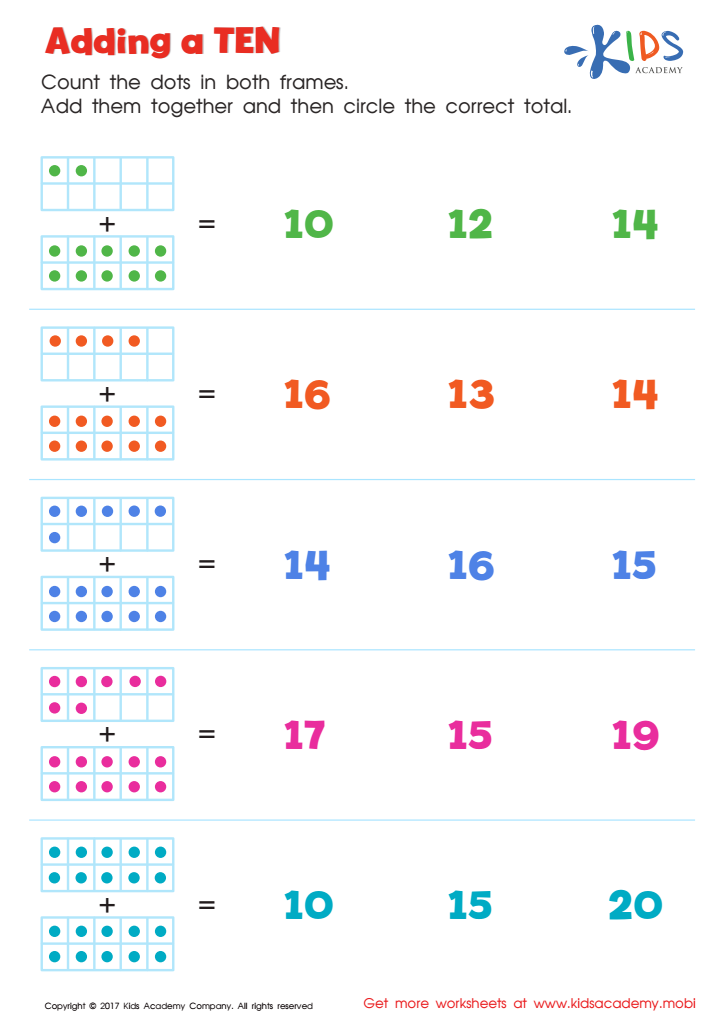

Adding a Ten Worksheet
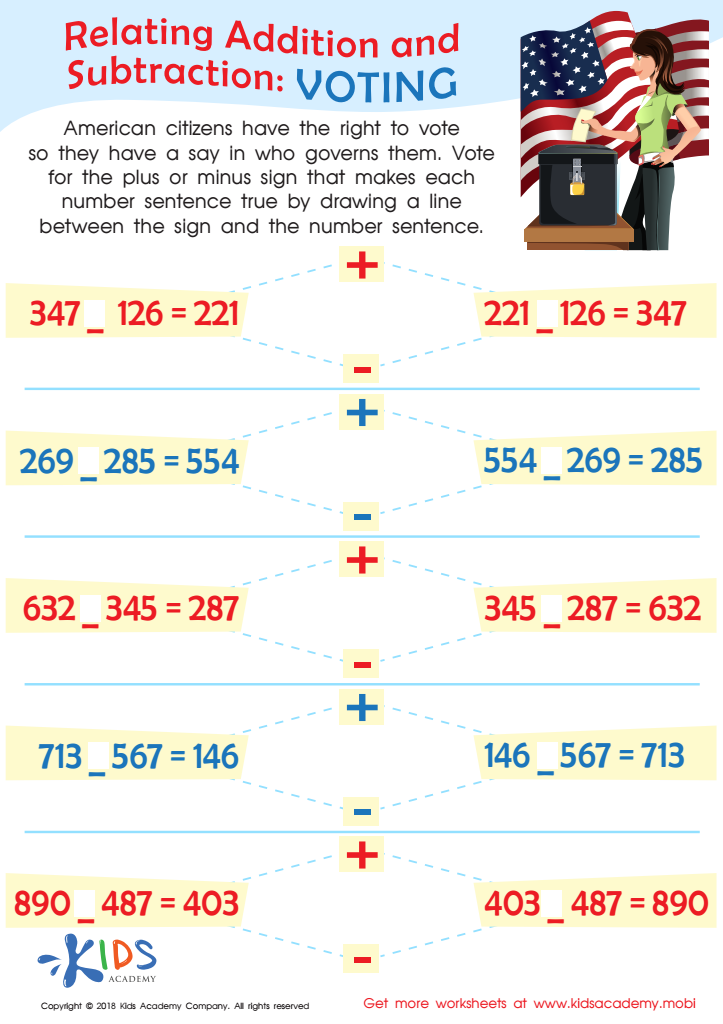

Voting Worksheet
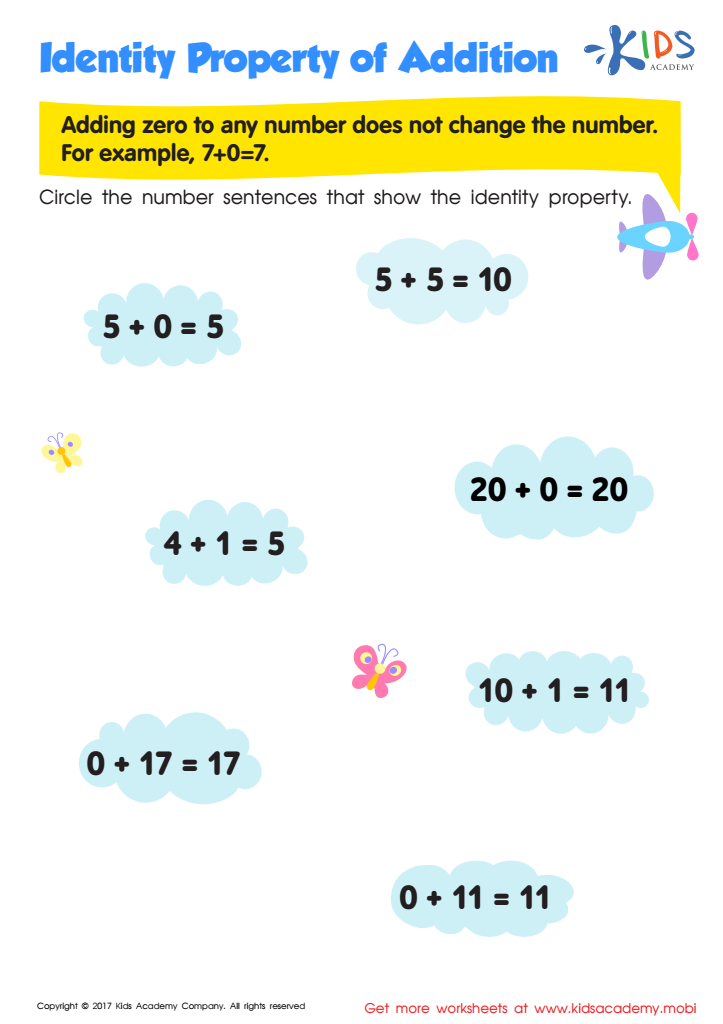

Identity Property of Addition Worksheet
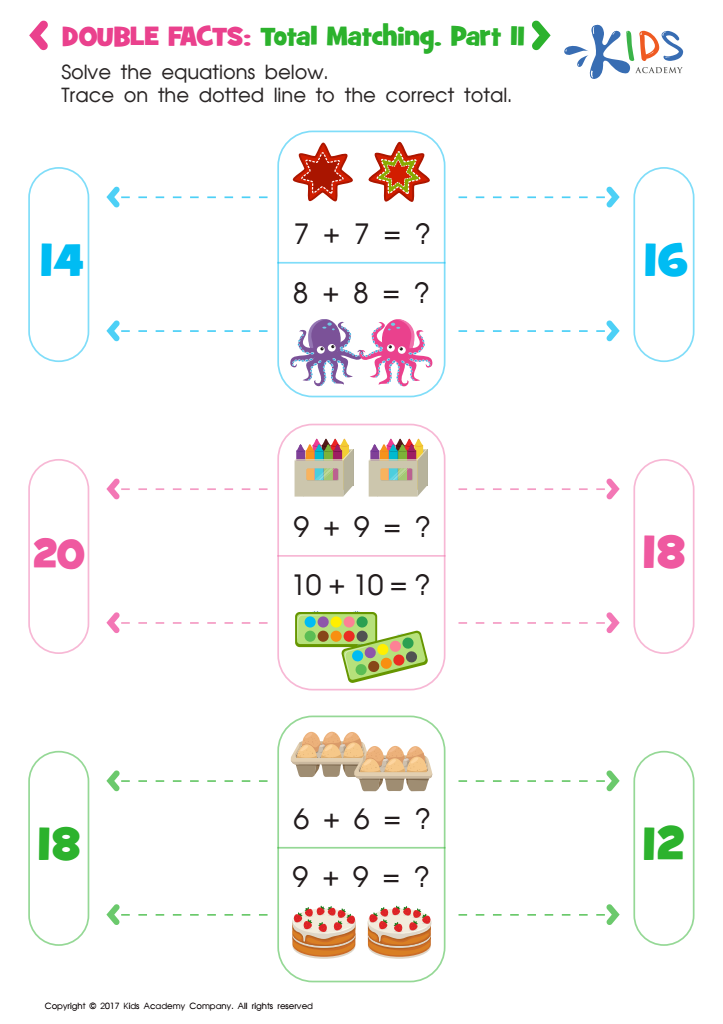

Double Facts: Total Matching 2 Worksheet
Understanding addition is a vital building block in early math education for children ages 3-8. During these formative years, children develop cognitive skills that lay the groundwork for future learning. Early comprehension of addition helps promote logical thinking, problem-solving, and critical reasoning abilities. The foundation formed through these concepts influences their approach to more complex mathematics later on.
Parents and teachers play a pivotal role in nurturing this understanding. By introducing addition in playful, engaging ways—such as through games, songs, and hands-on activities—they can ignite a child's curiosity and make learning enjoyable. This early exposure helps safeguard against math anxiety as children encounter more advanced concepts in school.
Moreover, a firm grasp of addition supports literacy development, as children often encounter math-based vocabulary in reading. By fostering an appreciation for math, parents and teachers can create a positive environment that encourages lifelong learning. It also enhances social skills as children work collaboratively, providing opportunities for communication and teamwork.
Ultimately, recognizing the importance of addition in the early years is essential for building confident learners who can tackle academic challenges with ease and develop critical skills that benefit them beyond the classroom.

 Assign to My Students
Assign to My Students
